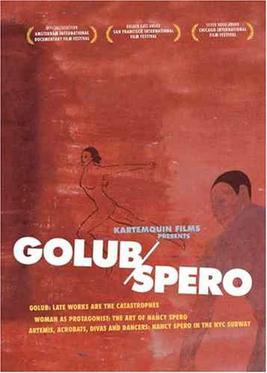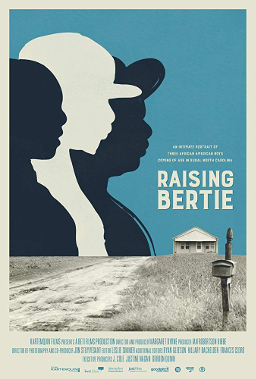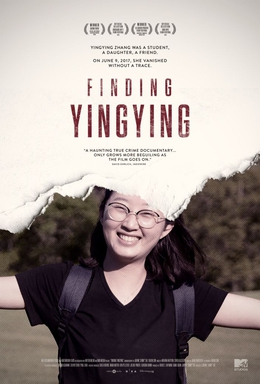
The Medill School of Journalism, Media, Integrated Marketing Communications is a constituent school of Northwestern University that offers both undergraduate and graduate programs. It frequently ranks as the top school of journalism in the United States. Medill alumni include over 40 Pulitzer Prize laureates, numerous national correspondents for major networks, many well-known reporters, columnists and media executives.

Mes Aynak, also called Mis Ainak or Mis-e-Ainak, was a major Buddhist settlement 40 km (25 mi) southeast of Kabul, Afghanistan, located in a barren region of Logar Province. The site is also the location of Afghanistan's largest copper deposit.
Steve James is an American film producer and director of several documentaries, including Hoop Dreams (1994), Stevie (2002), The Interrupters (2011), Life Itself (2014), and Abacus: Small Enough to Jail (2016).
Kartemquin Films is a four-time Oscar-nominated 501(c)3 non-profit production company located in Chicago, Illinois, that produces a wide range of documentary films. It is the documentary filmmaking home of acclaimed producers such as Gordon Quinn, Steve James, Peter Gilbert, Maria Finitzo, Joanna Rudnick, Bing Liu, Aaron Wickenden, and Ashley O’Shay (Unapologetic).

Terra Incognita: The Perils and Promise of Stem Cell Research, also known as Terra Incognita: Mapping Stem Cell Research, is a documentary film released by Kartemquin Films in 2007. The film follows Dr. Jack Kessler of Northwestern University in his search for a cure for spinal cord injuries using embryonic stem cells. When Kessler was invited to head up the Neurology Department at Northwestern, his focus was on using stem cells to help cure diabetes. However, soon after his move to Chicago, his daughter Allison – then age 15, was injured in a skiing accident and paralyzed from the waist down. In the moments following the accident, Dr. Kessler made the decision to change the focus of his research to begin looking for a cure for spinal cord injuries using embryonic stem cells.

Melody Gilbert is an independent documentary filmmaker, and educator from Washington, D.C. now living in Natchitoches, Louisiana. She has directed, filmed, produced, and sometimes edited, seven independent feature-length documentaries since 2002. The Documentary Channel calls her "one of the most fearless filmmakers in contemporary documentary cinema." She is currently an assistant professor of journalism at Northwestern State University.
Gita Pullapilly is a Hollywood film and television director, screenwriter, producer, and author. She writes and directs with her husband and film partner, Aron Gaudet under their banner, "Team A + G, Inc."
Debbie Cenziper is a Pulitzer Prize-winning American investigative journalist and nonfiction author. As of November 2022 she writes for ProPublica and is the director of the Medill Investigative Lab at Northwestern University. She spent more than a decade as an investigative reporter at The Washington Post, and has written two nonfiction books.

The Interrupters is a 2011 documentary film, produced by Kartemquin Films, that tells the story of three violence interrupters who try to protect their Chicago communities from the violence they once employed. It examines a year in which Chicago drew national headlines for violence and murder that plagued the city.

Golub is a 1988 documentary film, produced by Kartemquin Films, that examines the life and work of controversial painter, Leon Golub. Inspired by war, political oppression and the fight for Free Speech, Golub and his paintings are famous for their depictions of extreme violence. Also featured prominently in the film is his wife, anti-war feminist and artist, Nancy Spero. The documentary tracks Golub from starting with a blank canvas to a touring North American exhibition and eventually to an exhibition in Northern Ireland.

The International Academic Forum (IAFOR) is an NGO research organization based in Japan.
Joie Chen is a Chinese American television journalist as well as an Asian American broadcast journalist. She was the anchor of Al Jazeera America's flagship evening news show America Tonight, which was launched in August 2013. In January 2016, the channel announced it would close on 12 April 2016.
Michael Harvey is an American author, journalist, and documentary filmmaker.

Saving Mes Aynak is a 2014 independent documentary film, directed, produced, shot and edited by Brent E. Huffman. It was produced out of Kartemquin Films, the landmark Chicago-based documentary house, along with producer Zak Piper.

Almost There is a 2014 independent documentary film, produced by Kartemquin Films. It was directed by Aaron Wickenden and Dan Rybicky.

As Goes Janesville is a 2012 independent documentary film, produced by Kartemquin Films and 371 Productions. It explores the future of the American middle class by focusing on the stories of Janesville, WI.
Peter Kuttner is a Chicago filmmaker, activist, and cameraman. He is known for his early socially-conscious documentary films that touch on topics such as opposition to United States involvement in the Vietnam War, gentrification of Chicago, racism, and social class. He produced many of these with the film collective Kartemquin Films, of which he was an original member. He is best known for his work on the film The End of the Nightstick (1993) with Cindi Moran and Eric Scholl, which documented police brutality in Chicago and torture allegations against commander Jon Burge. Kuttner has worked extensively in activism and community service, and was a founding member of activist group Rising Up Angry. Kuttner has worked with many collaborators including Kartemquin Collective founder Gordon Quinn, and filmmakers Haskell Wexler and Robert Kramer. He is also known for camera work on a number of major motion pictures including Man of Steel and Source Code.

Raising Bertie is a 2016 American documentary film directed by Margaret Byrne and produced by Ian Robertson Kibbe, Margaret Byrne, and Jon Stuyvesant. It was distributed by Kartemquin Films and aired in shortened form on the 30th season of PBS's documentary series POV on August 28, 2017.

Finding Yingying is an 2020 American documentary film directed and produced by Jiayan "Jenny" Shi about the disappearance of college student Yingying Zhang and her family's search to find her.
Sherry Lynn Jones was an American documentary filmmaker known for investigative documentaries about national security issues and politics. She wrote, directed, and produced many documentaries for the Public Broadcasting Service (PBS) program Frontline, winning awards for several episodes including High Crimes and Misdemeanors (1990) about the Iran-Contra Affair and Watergate Plus 30: Shadow of History (2003).












